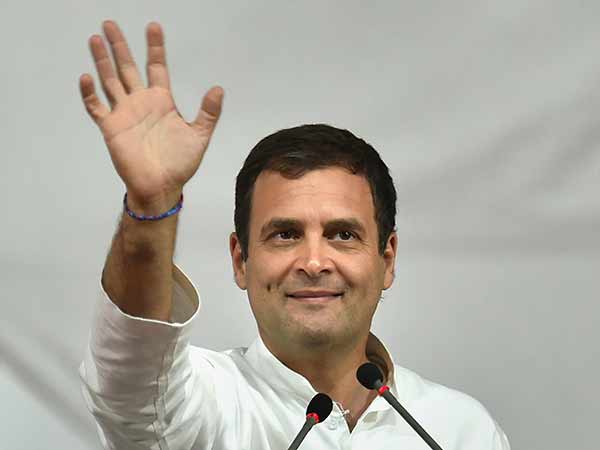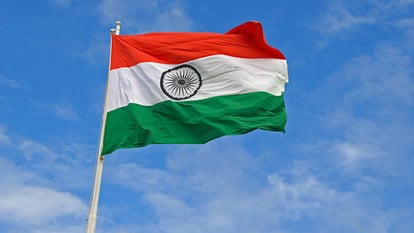The big question is why is the corporate class silent on the damage to the social fabric and the growing communalism?

There is a strange resemblance between celebrity sportspersons and actors. He is rarely seen speaking beyond his playground or beyond his reel life. It is not that he does not appear in advertisements nor does he make his presence in various types of colorful programs amidst full brilliance, but beyond that he remains silent. I don’t know what kind of blindfold is lying on their eyes that because of their faith, the killing of innocent people on the streets, the attacks of social and political forces on the couples who love their will or the massacre of minorities from public forums. Invocation, they do not see or hear anything. Corporate leaders also do not differ qualitatively from this.
It may seem that hearing all the cries and groans, their consciousness becomes equally bother, even when they speak about profit and loss, or do not go beyond the welfare or well-being of the emperor and his viziers. His script hardly progresses. It is obvious that in the past, when Mohtarma Kiran Mazumdar Shaw, the founder of India’s largest biopharmaceutical company, said something out of the script, then it seemed that a new fresh wind was blowing.
In fact, he raised the issue of increasing and increasing religious division in the country and clearly said that it will have adverse effects on India’s global leadership in the field of ITBT i.e. Information Technology and Biotechnology. In his tweet, he also cried out that it would be counterproductive to the heritage of shared culture in Karnataka.
One can say that his statement was very general, he wrapped his talk in a financial cover, whatever the case, but it is good to hear that at least he mustered up the courage. It is being told that she was upset due to first hijab controversy, then halal controversy and now non-Hindu traders are being prohibited from working around temples in Karnataka and she felt that she should break her silence.
As might be expected, she became the target of right-wing trolls for this voice of dissent, although there were many voices in her support, but it was worth noting that no leader of the corporate community was named in this list, even if she Have regular conversations with Shaw or have other business relationships with him.
There is hardly any exception to this vast silence among the corporate leaders. You can also say that his motto for today’s times has become ‘see no evil, say no evil, hear no evil’. Perhaps we can remember the last public appearance of the life of the pioneer Rahul Bajaj – who died a few months back – during which Mr Amit After Shah’s statement, Rahul Bajaj, sitting in the auditorium, got up and asked him some sharp questions.
The focus of the questions was on the lynchings, glorification of the assassin of Mahatma Gandhi, the feeling of fear prevailing in the industry, etc. It was worth mentioning that sitting in the auditorium, none of the emperors and leaders of the corporate world stood up and supported the words of Rahul Bajaj, as if he was talking about some other planet.
This inaction/subordination/submissiveness of corporate leaders is also visible in their own personal affairs, let alone larger constitutional issues and social problems. It was only last year when a magazine close to the ruling party made various allegations against the country’s leading blue chip company like Infosys, even calling it ‘Anti National’ and said that it was ‘ The Naxalites are helpful to the ‘tukde-tukde gang’.
The reason was only that the income tax portal prepared by the above company for the Government of India, which was being operated by the same, was constantly facing some technical problems in it. It was only on this matter that the above-mentioned magazine, which is said to be close to the Rashtriya Swayamsevak Sangh, had made this attack.
It was at this time that the Tata group and many leading business establishments of the country were made similar unsubstantiated allegations by Piyush Goyal, a senior minister of the Central Government in a meeting of CII. He was told that he was ‘not doing more taxes for the national interest’.
The subsequent developments in both the cases were eye-opening. Despite the fact that the allegations were baseless, neither of the two companies made any official rebuttals. Since there was no protest from any party, the matter got buried there.
‘We Two, Our Two’
You can say that this silence of corporate groups is visible because the government follows the policy of ‘danda and inducement’. Showing special favor to industry groups close to them, who are ready to speak the language of the government, waiving their loans, while dissenting industry groups or their owners through various government agencies – be it Income Tax, ED or CBI – Initiating an action.
We can recall the GMR group – which was once number one among the airport operator groups, which also operated the most profitable Mumbai airport. It is worth noting that due to these reasons, he was not interested in selling the operation of this airport to any other group, on the other hand the Adani group wanted to operate this airport and wanted to buy it.
How the actual development of the latter proceeded was not properly revealed in the media, but despite all its opposition, suddenly the GMR group sold this airport to the Adani group. Everyone knows that there is opacity somewhere in the business of every major corporate group, it is possible that after being pointed towards them, GMR Group has agreed to this transfer.
The Leader of the Opposition, Rahul Gandhi, while attacking the government on the floor of Parliament, had said in gestures that how the present government runs on the policy of ‘Hum Do Aur Hamare Do’, in which the two leading leaders of the ruling group and Was on the side of two corporate dynasties dear to the government. The journey of the Adani Group, which was considered unknown in the industry around the year 2000, is just a two-decade journey, where it is said that it is still standing in the line of the world’s top ten companies.
People will write this story by making a special focus, but for the time being, listen to the same news that just last week it was reported that State Bank of India has waived the loan of 12,270 crores for Navi Mumbai International Airport – which is now Adani Airport. done.
Difference between most powerful and biggest democracy
If we compare the silence or subjugation of the corporate monarchs in the world’s largest democracy with the behavior of the corporate groups of the world’s most powerful democracy, a difference is visible. We can remember the days when Trump came to power and began to pursue his white supremacist policies, how many corporate groups opposed him at their level.
For example, in his initial months, he had suddenly banned immigration from select Muslim-majority countries, due to which not only there was an outcry at all the airports of the world, thousands of people were seen stranded everywhere. Several corporate groups—and their numbers were not negligible—challenged this ‘unjust order’. Airbnb, which managed free housing for those affected by the ban, immediately announced a fund to help organizations working for immigrant rights, the Google company.
A section of corporate groups, knowing that they would bear the brunt of such actions, felt that they should speak up on the issue. It was not as if a huge corporate conglomerate like Boeing had to suffer a collapse in stock prices shortly before, in favor of trade agreements—which was against President Trump’s agenda. were not aware. Can this difference be explained simply on the basis of hollowing out institutions here—which were already not very strong—and how the ruling party has been using these institutions recklessly to lash out at their political opponents. Tried to nail it.
Perhaps it can also be understood that ‘in contrast to developed societies, where free market thinking and liberalism have progressed together, economic interests in developing countries are intertwined in maintaining the cultural hierarchy and Hindu supremacism.’ [As opposed to to advanced societies where freemarket thinking and liberalism have gone hand in hand, economic interests are interlocked with interest in the maintenance of cultural hierarchies and the Hindu supremacies that the lynchings claim to defend.] By the way, it is a worrying aspect of the current scenario that the role of the judiciary, which till now was present as a ray of hope for the downtrodden and the oppressed, also does not appear as expected in many such cases.
The length of time the issue of electoral bonds had been before the Supreme Court (which was raised by Chief Justice NV Ramana a few days back), focused on the opaqueness of corporate groups’ donations to political parties; Just as a state of the country, Jammu and Kashmir, was divided overnight into two union territories; With the number of days that the habeas corpus cases have been pending before the Supreme Court, there are many issues that can be indicated. It is known that despite all its limitations, the American judiciary had made President Trump quite restless with many of its decisions.
The hype of corporate groups towards Modi predates the NDA government – which has been running for the last almost eight years.
We may recall that in the early years of the second decade of the twenty-first century, when Modi was the Chief Minister of Gujarat and the successful UPA government led by the Congress, the ‘Vibrant Gujarat Summit’ was organized in Gujarat by several leading corporate groups. ‘, which was organized by the state government. In such conferences, the leading industrialists of these had wished for Modi to become the Prime Minister, had announced.
In the name of ‘Gujarat model’, the Modi government in those days openly accepted the neo-liberal model in the state, open invitations being given to industrialists to come to Gujarat to invest, ‘industrial peace’ present there (due to which the trade union activities in the state) There were many curbs etc.) and the highly polarized society created in Gujarat after the 2002 riots, these were all aspects that attracted industrialists.
In contrast to this, in those days the ruling UPA government at the Center, which had started a reversal towards welfare policies in view of the public anger, even did it through land acquisition.







